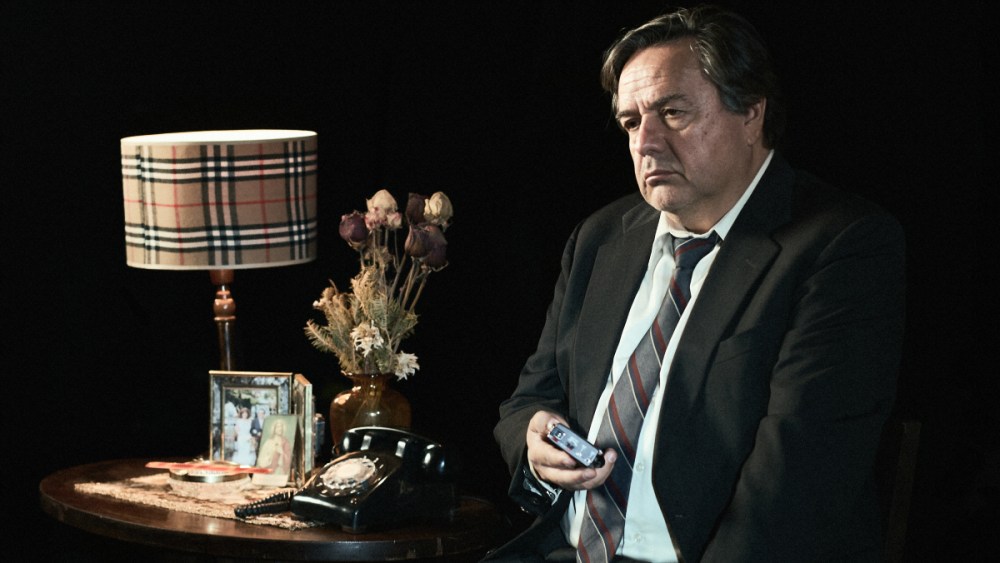Augusto Pinochet Henchman Eugenio Berríos Caught in ‘Black Cocaine’
A dandy, simpático, intelligent, a bar room singer who could belt out “Malagueña,” and a drug addict, murderer and cocaine cook for Augusto Pinochet: Few figures are more synonymous with the heinousness of the Chilean dictator’s regime than his go-to chemist, Eugenio Berríos, last seen as a skeleton discovered buried in Uruguay’s Pinar Beach in 1995.
Presented at this week’s Sanfic Industria in its Work in Progress section, “Black Cocaine” (“Cocaina Negra”), the latest doc feature from Chile’s Cristóbal Valenzuela (“Stealing Rodin,” “Alien Isle”), proved one of Sanfic Industria’s biggest winners, scooping two of its WIP contest’s most important prizes.
That can be put down in part for achieving a coup, locating tapes recorded by Berríos himself, which range from a banal phone call with his wife, to a monolog where he recounts his past and insinuates he could say much, much more.
Hannah Arendt wrote famously in Eichmann in Jerusalem about “the banality of evil.” Valenzuela refers to preface “Black Cocaine” with another Arendt quote, that horror can be grotesque, if not completely comic. Certainly, Berríos life, as portrayed by Valenzuela, has huge ironies.
He worked for Pinochet’s Gestapo, Chile’s DINA secret police, from 1974. By 1976, working out of the basement of a rambling concrete mansion in Lo Curro in upper-class Santiago, he was producing sarin, a nerve agent first used by Nazi Germany, which he personally used to kill real state archives custodian Renato León Zenteno, who refused to turn over properties to Pinochet.
“They called him the mad genius, who loved his work. I remember when we tested the sarin, and his shouting with happiness. ‘Let’s try it out on a burro,’” DINA terrorist Mariana Calleja recalls in archive footage shown in “Black Cocaine.”
Reenacting scenes from his life, using dialog from Berríos real-life tapes but performed by actors in dramatised scenes, woven into eye witness accounts, again dramatised.
“Cocaína Negra” delivers a portrait of a man who cooked black cocaine for Pinochet, access to which turned him into an addict, which spelt his downfall. Sociable, he was simply a man who talked too much, to others and even alone, when he recorded many of his tapes.
Berríos’ own lack of ethical conscience means he underestimated the lack of ethical conscience of Pinochet and his DINA agents, until too late. His dramatic life climaxes in farce.
“Black Cocaine” is produced by Flor Rubina and David Bravo for Chile’s Blume Producciones and Emiliano Mazza and Adriana González for Uruguay’s Passaparola Films.
Variety talked briefly to director Valenzuela about one of the biggest buzz projects at this year’s Sanfic.
Hannah Arendt wrote famously about the banality of evil. I’m not sure, however, if Berríos would be a case. You prefer to quote Arendt remarking that “horror can be grotesque, if not completely comic” (si traduczco bien). Could you comment?
I read Hannah Arendt’s book during the production of “Black Cocaine” thinking entirely about Berríos. If Berríos and Eichmann had different personalities, for me ‘Black Cocaine’ is a film about the banality of evil versus total evil. Berríos’ recordings can’t be more banal., you hear him arguing with his wife, parting with friends, even going to the toilet. There are tapes which didn’t make the film of his watching TV, without saying anything. Berríos was sociable, charming, loved parties, he had friends on the political left, one of his best friends has ben jailed under the dictatorship. You could like him. But the context, circumstances and lack of reflection made his this detestable being.
“Black Cocaine” ends in farce, with Berríos’ escape from his guards. It is also highly ironic: Berríos’ own lack of ethical conscience means he underestimated the lack of ethical conscience of Pinochet and his DINA agents, until too late…Again, could you comment?
Berríos’ lack of ethical conscience meant he associated with the worst part of DINA. At first, another scientist was in charge of producing sarin. But when he saw what way the project was going, he resigned and left the country, but left Berríos in charge, who was his mad university colleague. Berríos joined the project happily. But Berríos had a problem for the military. He just couldn’t shut up. He told half the world what he was doing, and his addictions – cocaine, alcohol – didn’t help. He was a man who talked too much. That spelt his doom. He was useful until he became a danger.
Have Berríos’ recordings been made public before? And how many are there?
During production, a podcast published some of them. We have the same source. Nobody else has access: the film and podcast can be complementary. We’re the first to make audiovisual use of them. The tapes appeared when we were close to shooting. We had to stop production and rewrite the screenplay because they were incredible. Listening to Berríos snorting cocaine was mind boggling for me. I’d spent years researching. This material was like a gold-mine. Six tales have survived. There must be many more since Berríos was always recording. Eye witnesses says he even recorded in Uruguay but those tapes are lost.
In the longest speech reenacted in the film, he appears to be delivering a speech about his past which intimates that he could tell far more. This almost seems like a rehearsal for conversations with DEA, to do a Towney and get witness protection. Or maybe I’m reading this wrong.
It’s highly damning. Berríos talks about the house in Lo Curro, Orlando Letelier assassination. The truth is he’s talking about them to a lawyer he didn’t know who he was consulting about a problem he had with a property. He just couldn’t shut up.
By the end of the ‘80s, he was completely ruined, swimming in debt, signing checks to get cash up front and then not paying. He had various court cases, spent a month in jail. He was wanted by banks, money lenders, was working with Peruan narco kingpins, the U.S. government’s Drug Enforcement Agency, Narcotics police, trying to negotiate information. He was cornered, his marriage was falling apart, but it was when human rights abuse [under Pinochet’s dicatorship] began to be investigated with democracy in 1990, that the army decided to hide him.
Berríos looks like a man who needed chronically to be the center of attention, which he could achieve by singing “Malagueña” in a bar, or recording his own voice, where he is stage front and center. Would you agree, or were there other reasons for his recordings?
It’s not clear why he made these tapes. He carried a hidden tape-recorder when he was talking about drugs or debts, but he pretty well recorded anything, which I thank, which gave us layers to construct an intense character, always on the limit, desperate, full of contradictions. Maybe he foresaw his end and wanted to leave some record of himself, with the hope that somebody would one day find these tapes that they would fall into our hands, becoming this film.

